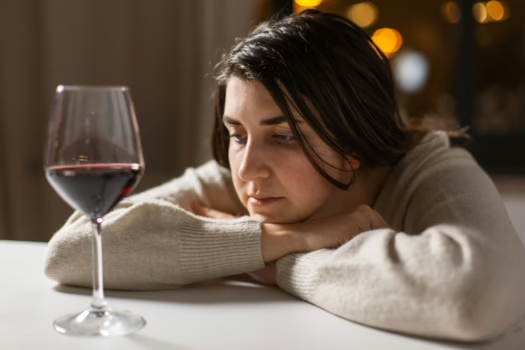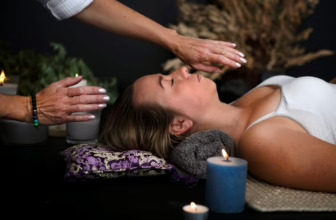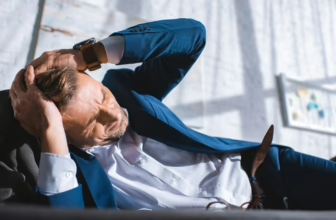It’s easy to laugh off the memes. You know the ones: jokes about hiding wine in coffee cups at school pickup or the ones that crown rosé as “mommy’s little helper.” They're funny in that almost-too-true kind of way, especially when you’re overwhelmed, touched-out, and holding together your household like duct tape and grit. But behind all the humor is a very real and very quiet crisis. More and more women are turning to alcohol not just as a way to unwind, but as a lifeline. And the scariest part? Many don’t even realize it’s happening until they’re way too far in.
The Rise Of Quiet Drinking
There’s nothing new about alcohol showing up in American culture. What is new is how deeply it’s wedged itself into the lives of women, particularly over the past decade. We’ve been taught that wine nights are self-care and happy hour is a personality trait. With lives often built around caregiving, emotional labor, and juggling jobs on top of that, the idea of alcohol as relief becomes almost automatic.
Add to that the way women are marketed to—sleek bottles, “clean” alcohol, “wellness” cocktails—and it doesn’t feel like self-destruction. It feels like participation. Like belonging. And yet the statistics are getting louder. Women’s drinking has increased sharply, and so have alcohol-related health problems in women, including liver disease and anxiety disorders that often escalate right alongside it.
Many of us are drinking not at parties or big social events, but alone. Quietly. While folding laundry. After the kids are asleep. Between Zoom meetings. And that silence can feel like control—until it starts to spiral.
When The Glass Becomes A Mask
There’s a difference between pouring a glass of wine on Friday and needing one just to get through Tuesday. But the line is blurry, and life doesn’t usually announce when you’ve crossed it. Maybe you’ve noticed you’re more irritable without it. Maybe you’ve caught yourself making justifications—long day, big feelings, totally earned it—even though it’s becoming a habit you didn’t actually sign up for.
The truth is, alcohol can sneak in as a stand-in for all the things we feel we’re not allowed to say out loud. I’m lonely. I’m overstimulated. I don’t want to cook dinner, explain fractions, or manage everyone’s feelings right now. So we drank. And it works. Until it doesn’t.
What starts as taking the edge off can quickly shift into avoidance. And using alcohol as a crutch becomes easier than confronting what’s underneath: the burnout, the identity loss, the resentment, the fatigue. There’s a reason why women who seem “high-functioning” often hide the deepest struggles. We’re taught to perform strength, not admit need.
Unpacking Why We Reach For It
Understanding why women drink isn’t about shame—it’s about honesty. And there’s plenty to be honest about. For a lot of women, alcohol becomes a tool for coping with stressors that feel too heavy to name. Whether it's the constant mental load of motherhood, the quiet ache of isolation, the impact of trauma, or just the invisible pressure to keep it all together with a smile, drinking can feel like a shortcut to calm.
And let’s not forget that we’re living in a culture that still punishes women for taking up space emotionally. Anger, sadness, and anxiety are often brushed aside or medicated quickly. Alcohol becomes a socially acceptable release valve. No one questions the glass of wine. But they might question why you're crying in the car outside of Target.
The comfort it offers is temporary. What lingers is the way it rewires your brain to associate relief with a drink—and soon you’re stuck in a loop that’s hard to see your way out of. The routine starts to feel like a requirement.
How To Get Help Without Losing Yourself
Here’s the good news: help exists, and it doesn’t have to come with shame, lectures, or outdated ideas of what addiction “looks like.” Women are waking up to the fact that support needs to fit the reality of their lives, not the stereotypes. That’s where women’s rehab for drinking comes in. These aren’t the cold, clinical facilities you’ve seen in movies. The best of them are designed specifically for women’s emotional needs and daily realities. They focus on healing—not just stopping.
What sets them apart is that they don’t treat alcohol like the only issue. They treat the whole woman. That means untangling the emotional roots of drinking, rebuilding confidence, and finding better ways to deal with the hard stuff. These programs know that women often carry invisible weight—trauma, caretaking, body image struggles, perfectionism—and they meet you there.
More importantly, they create space where you're not the only one. Just being in a room where no one expects you to pretend can feel like a revolution. Recovery isn't about becoming someone new. It’s about remembering who you were before you felt like you needed alcohol to be okay.
The Reality Of Letting Go
Giving up alcohol—or even just cutting back—can feel terrifying, not because you love it that much, but because of what it represents. For many women, it’s not the buzz they’re afraid of losing. It’s the comfort, the ritual, the pause in a relentless day. But what if you could build a life that didn’t require escaping from?
That starts with getting honest, even just with yourself. It might mean talking to a therapist. It might mean texting a friend and saying, “I think I need help.” It might mean researching programs in the quiet of your bedroom, heart pounding. All of that counts. You don’t need to hit a rock bottom. You just need to want better.
There’s also no single path. Some women find peace in quitting entirely. Others need structured help. Some simply need to step back and reexamine the role alcohol plays in their life. All of it is valid.
Finding Your Way Back To Yourself
It takes guts to look at something you’ve leaned on and say, “This isn’t helping me anymore.” But you’re not weak for needing help. You’re not broken because you used alcohol to survive a hard season. You’re allowed to decide that you want more out of life than waking up groggy, going through the motions, and repeating the cycle.
The path back to clarity, to confidence, to feeling like yourself again—it’s real. And you don’t have to walk it alone. You just have to take the first honest step.
Follow me down the rabbit hole!
I'm Alice and I live with a dizzying assortment of invisible disabilities, including ADHD and fibromyalgia. I write to raise awareness and end the stigma surrounding mental and chronic illnesses of all kinds.








